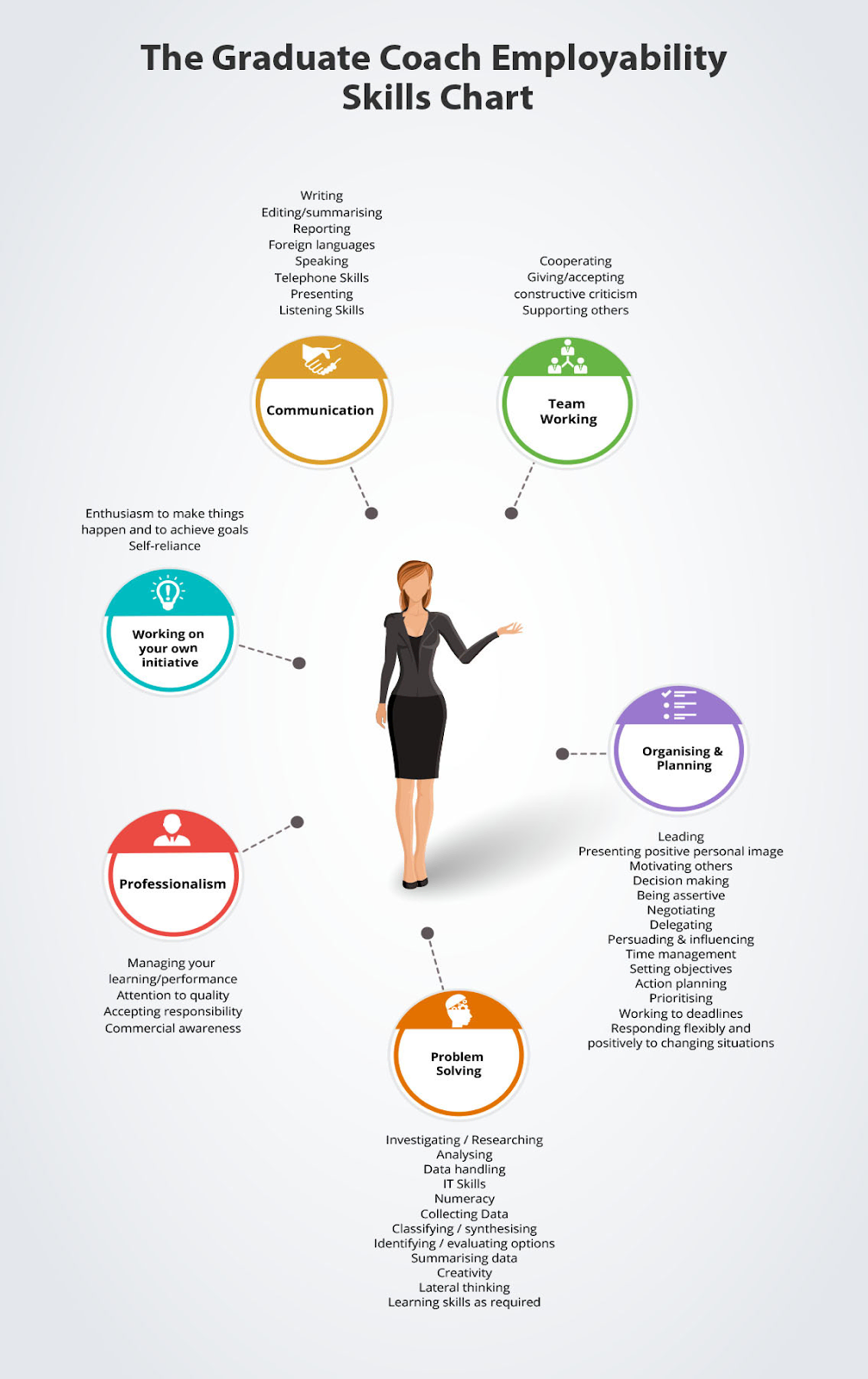Why Your Employability Skills are the Key to Landing a Graduate Job

While you may have graduated from university with a great degree, this does not guarantee you a job immediately after you graduate. This is because employers are interested in what skills you have that can benefit them and their company, not what marks you got for your various pieces of coursework.
In response to this issue, the CBI has set out nine key skills, which will make you stand out among other graduates in terms of employability. While you may have already developed some of these skills throughout your time at university, they are a good indication of what to work on if you are still not getting any job offers.
-
Business Awareness
Business awareness is concerned with your professionalism in the workplace. This includes your attitude towards customers and colleagues, ensuring that you are respectful at all times. Business awareness is also concerned with understanding your role, and how it fits with the others around you.
In a wider sense, you should also be aware of the wider market your business is competing in, and how your main competition is. It is far more impressive to an interviewer if you can discuss in even a little detail about the company you are applying to, rather than having it explained to you.
-
Effective communication
This is fairly self-explanatory, being the ability to express yourself with both written and spoken words. Your ability to communicate is especially important during your interview, allowing you to express your strengths and show the interviewer that you have these nine employability skills that will make you stand out from other applicants.
Even after you have landed the job, your ability to express yourself remains one of the most important skills, allowing you to effectively communicate with both colleagues and customers, adapting your tone for different situations.
-
Entrepreneurship and Enterprise
Entrepreneurship is focused on being creative and being able to apply this thinking to your tasks to solve problems. In simple terms, this is being confident enough to take the initiative, and not sitting back and hoping that someone else will do it for you.
This does not mean that you should aim to lead every conversation that you are a part of, or suggest ideas you are not confident in, but you need to show potential employers that you can come up with solutions that are not immediately obvious to the majority of other employees at the company you are applying to.
-
IT
This is something that you should already be familiar with from your time in education, but you need to demonstrate at least a basic level of ability with commonly used pieces of software. This requirement will increase dramatically if the job you are applying for is in programming or something similar.
If you are not entirely familiar with the software used at the company you are applying to, you should at the very least demonstrate the willingness to learn and the ability to do so quickly. This is important as IT is crucial for running an online store and communicating with potential customers and clients.
-
Numeracy
Another self-explanatory skill, and one you should already be reasonably proficient in. For most jobs, numeracy will allow you to do basic calculations to determine things such as sales totals and percentages. This is not any more difficult than the maths you had to do at school, so don’t feel intimidated by it.
Your numeracy skills will also allow you to analyse data such as graphs, recognizing the most relevant data, and allowing you to make informed decisions based on this information. There are certain jobs that will require a higher level of numeracy than others, so you should research the job you are applying for if you think this will be the case.
-
Problem-solving
This is a similar skill to enterprise although it differs in several ways. While both problem-solving and enterprise are concerned with taking direct action, the former is also concerned with identifying the existence of these problems, and not simply responding to them once they become too big to ignore.
To be an effective problem-solver, you will need to combine several different business skills, such as having the business awareness to identify how to solve the issue, communicating with colleagues to let them know a problem exists and possibly asking for their help if necessary. If the problem is widespread enough to ask for help, you will also need sufficient team-working skills to work together effectively.
-
Resilience
Resilience is the ability to encounter difficulty and keep going despite it. This difficulty can be both personal and professional and can include both major and minor challenges.
While overcoming the former will stand out on a cover letter or in a CV, you will have to deal with smaller challenges on a daily basis. This is important as resilience over a longer period of time is just as important as during major crises, as employers are interested in how you will perform in the long term and not just one specific task.
-
Self-management
Self-management is the organisation of both time and resources, ensuring that you meet deadlines on time while completing your given tasks as effectively as possible. This may include writing down a list of jobs you have been given, and prioritising the order you do them according to how long it will take and how important they are.
Being good at self-management also means that employers are comfortable leaving you to work on your own without being constantly checked on. This is an especially good quality to have as both your employer and colleagues would prefer to be working on their own jobs rather than constantly checking and correcting your own work.
-
Teamwork
In particular, you will need to be able to work effectively with people you either don’t know very well and even those you don’t get along with at all. The latter especially is part of a professional attitude, something you will need to exhibit on a daily basis at nearly every job.
Teamwork combines several previous employability skills, such as communication and problem-solving. The latter in particular is relevant as larger problems are often too big for individuals to handle, and so require a team of people to solve.

If you can display most or all of these skills to a potential employer, such as during an interview or on a CV, you will have a much higher chance of getting the job you want, than if you had relied solely on your degree. For more tips on how to find a job after graduating, try reading some of the posts on Graduate Coach’s career blog.
Written by Sam Sheridan
Featured image by Christina Morillo from Pexels











Responses